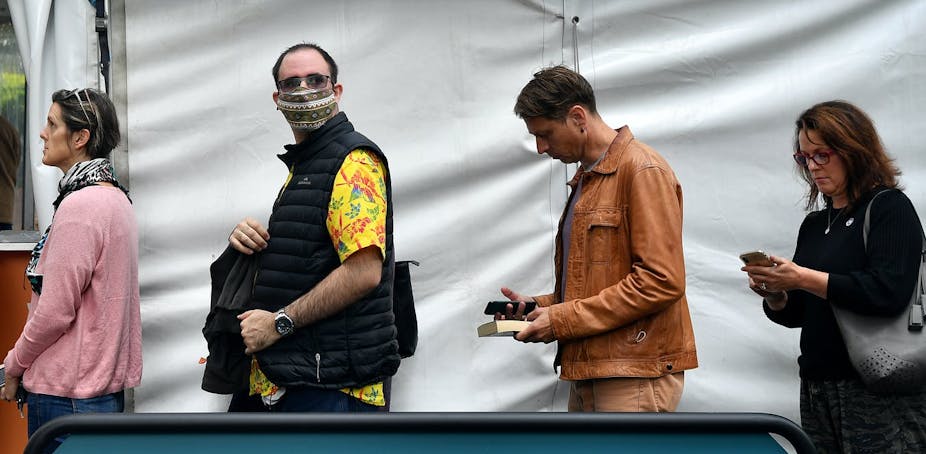Every month, we track what happened to The Conversation authors after we published their articles. Here are some of their stories from June 2021.
Expert-led content proved hugely popular online
The story that attracted the most interest from our audience in June was Maria O’Sullivan from Monash University’s piece on whether those without vaccine certificates could be banned from restaurants, shops and theatres. It has been read over 500,000 times! The article was cited as expert commentary by ABC News and Maria was interviewed on ABC Radio in Melbourne, Sydney and Western Australia. She said:
“I am so glad the piece was widely read. I also want to acknowledge the commissioning and editing work that Judith and Justin did - they are superb! Many thanks for all the wonderful contributions you make to public debate.”
The second most-read article in June was Nicholas Wood from the University of Sydney’s piece on the side effects of the Pfizer vaccine, demonstrating our audience’s continued interest in health experts’ insights on the vaccination rollout.
Dana Rezazadegan from Swinburne’s article on whether your phone is listening to you was also very popular, attracting almost 350,000 reads – most of which came from mobile devices. Don’t worry, your phone probably isn’t eavesdropping on you, but your browsers and apps may be tracking what you’re reading right now. The article was republished by 20 other media outlets around the globe including IFL Science and Channel News Asia, and Dana was interviewed on ABC Radio in Melbourne and Sydney.
On social media, Dennis Muller from the University of Melbourne’s article about the difference between media coverage of the Sydney and Melbourne lockdowns proved a hit on Twitter.
Meanwhile, Peter Evans from the University of Queensland’s piece on reality and quantum theory proved immensely popular on Facebook. It is a testament to the quality of Peter’s writing that he could break down such a complex topic and grab the attention of over 260,000 people.
Translating academic insights to the small screen
In June, a significant number of our authors were interviewed by national TV programs about their research, further amplifying their expert insights.
After Abraham Leung, Benjamin Kaufman, Elaine Chiao Ling Yang and Matthew Burke from Griffith University wrote about how e-scooter riding tourists spend more, Matthew was interviewed on Channel 10 News. The article was republished by other media outlets including Global Times and their research was cited by the Canberra Times.
Similarly, after the University of Newcastle’s Matthew McLaughlin co-wrote a piece on why schools should let students wear sports uniforms every day, he was interviewed by 7 News Melbourne, Ten News First Melbourne and the Sydney Morning Herald. The article was republished by the Herald Sun, and the Newcastle Herald modified it for a local context.
John Hopkins from Swinburne University also appeared on 7 News after writing about the global microchip shortage during the pandemic.
Increasing academics’ recognition within higher education
Publishing with The Conversation has also helped our authors gain recognition of their work within academia. ANU PhD candidate Dominik Koll wrote about stardust, which led to the university showcasing his research on their website. They also distributed his article internally to his colleagues in the School of Physics, from which he received valuable and positive feedback. Such recognition and advice can be especially important for early-career researchers.
Finally, Sarah Dart from QUT’s piece on what students value in online lecture recordings saw her invited by Griffith University to advise them on how to improve their online seminars – an increasingly important part of the student experience since the onset of the pandemic.

